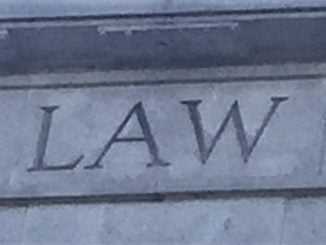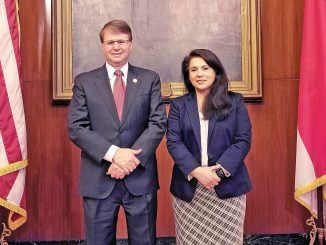RALEIGH — The North Carolina Supreme Court granted a request backed by attorneys for the state, local school boards and guardians of current students to hear the matter in the coming months, rather than wait first for a ruling from the intermediate-level Court of Appeals.
The justices agreed to accelerate the process to determine whether a trial judge had authority to order $1.75 billion in taxpayer money be spent to address inequities in the public schools.
The order is the latest in school funding litigation that began nearly 30 years ago — known as “Leandro,” an original plaintiff’s name — and is now heading to a constitutional showdown between the three government branches.
The Supreme Court, in an order released Monday, did not give deadlines on when they would accept briefs or hear oral arguments.
The $1.75 billion, which was ordered to be spent from state coffers, never got moved.
A Court of Appeals panel on Nov. 30 blocked retired judge David Lee’s directive, stating the job of appropriating money is expressly left in the state constitution to the General Assembly.
Additionally, on Monday, Chief Justice Paul Newby moved Lee off the case according to court records.
Michael L. Robinson, one of the special judges of the Superior Court of North Carolina, will now hear all matters relating to the case.
Robinson was first sworn in as a Special Superior Court Judge for Complex Business Cases on July 1, 2016, with chambers located at Wake Forest University School of Law in Winston-Salem.
Prior to joining the Business Court, Robinson worked in private practice for 35 years in Winston-Salem with Petree Stockton & Robinson and with Robinson & Lawing.
Cooper and fellow Democrats have said the budget falls short in complying with the remedial plan, which addresses, in part, teacher recruitment and salaries, pre-kindergarten expansion and more spending in low-wealth counties.
On Dec. 1, 2021, North State Journal reported that the majority opinion of the appellate judges stated that it is up to the “legislative and executive branches” to act and if those branches ignore it, then “the remedy lies not with the courts, but at the ballot box.”
“The people of North Carolina through their elected legislators, not an unelected county-level trial judge, decide how to spend tax dollars,” said Senate Leader Phil Berger (R-Eden) said at the time. “Rather than accepting responsibility for lagging achievement and outright failure, the Leandro parties insist that the pathway to student improvement is always the simple application of more money.”
Lee’s order sought to go around the legislature to transfer the funds in violation of the North Carolina state constitution, that states in Article V, Section 7, “No money shall be drawn from the State treasury but in consequence of appropriations made by law.”
The Associated Press contributed to this report.



